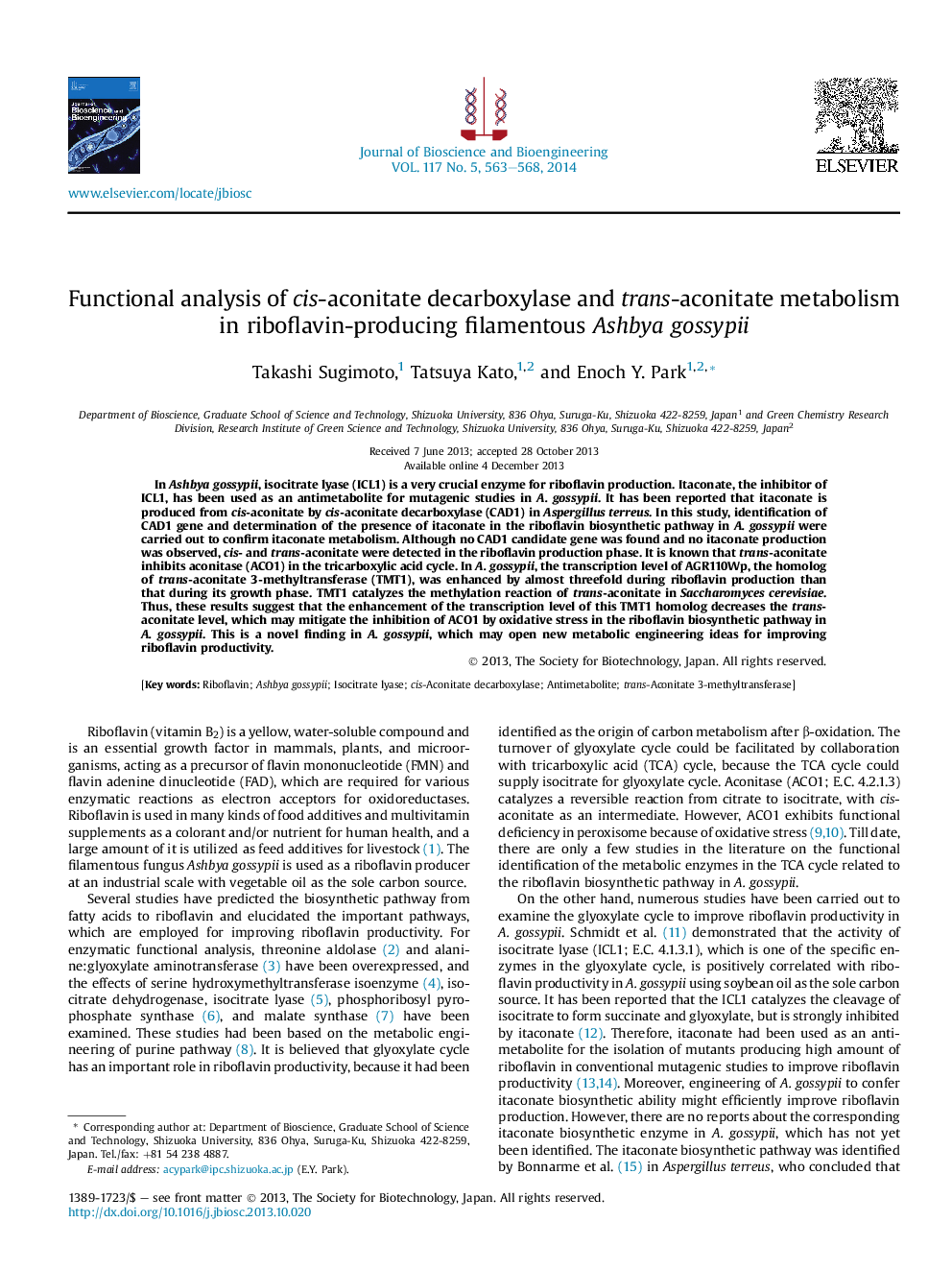| Article ID | Journal | Published Year | Pages | File Type |
|---|---|---|---|---|
| 20469 | Journal of Bioscience and Bioengineering | 2014 | 6 Pages |
In Ashbya gossypii, isocitrate lyase (ICL1) is a very crucial enzyme for riboflavin production. Itaconate, the inhibitor of ICL1, has been used as an antimetabolite for mutagenic studies in A. gossypii. It has been reported that itaconate is produced from cis-aconitate by cis-aconitate decarboxylase (CAD1) in Aspergillus terreus. In this study, identification of CAD1 gene and determination of the presence of itaconate in the riboflavin biosynthetic pathway in A. gossypii were carried out to confirm itaconate metabolism. Although no CAD1 candidate gene was found and no itaconate production was observed, cis- and trans-aconitate were detected in the riboflavin production phase. It is known that trans-aconitate inhibits aconitase (ACO1) in the tricarboxylic acid cycle. In A. gossypii, the transcription level of AGR110Wp, the homolog of trans-aconitate 3-methyltransferase (TMT1), was enhanced by almost threefold during riboflavin production than that during its growth phase. TMT1 catalyzes the methylation reaction of trans-aconitate in Saccharomyces cerevisiae. Thus, these results suggest that the enhancement of the transcription level of this TMT1 homolog decreases the trans-aconitate level, which may mitigate the inhibition of ACO1 by oxidative stress in the riboflavin biosynthetic pathway in A. gossypii. This is a novel finding in A. gossypii, which may open new metabolic engineering ideas for improving riboflavin productivity.
